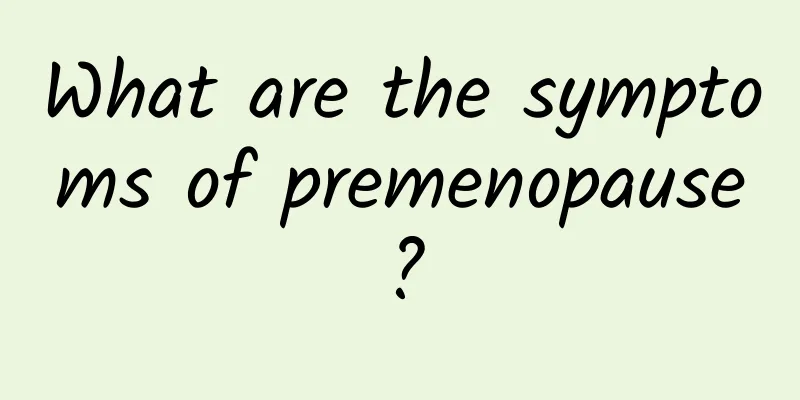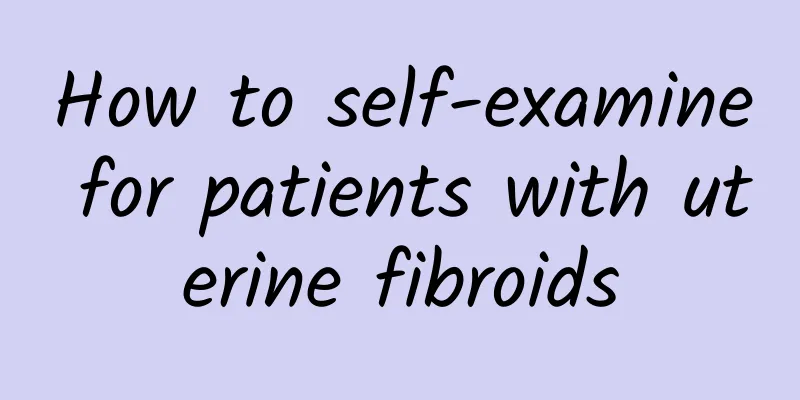What are the symptoms of premenopause?

|
Symptoms of premenopause vary and are often confusing. Premenopause is the phase in a woman's life when she gradually transitions from her reproductive years to menopause, usually between the ages of 40 and 50. During this phase, a woman may experience a range of physical and emotional changes. During premenopause, your menstrual cycles may become irregular. This is like nature's way of telling you that your body is going through a transition. Your periods may become shorter or longer, heavier or lighter. Sometimes, it's common to have periods longer or even come infrequently during the menopause period. Many women also experience hot flashes and night sweats, which feel like a sudden heat wave and are often more pronounced at night, disrupting sleep. Mood swings are also a common symptom of premenopause, and you may feel anxious, depressed, or irritable for no apparent reason. Memory loss and difficulty concentrating may also occur, as if your brain is playing tricks on you. Physically, women may notice weight gain, especially around the belly, which is related to changes in hormone levels. Skin and hair may also change, with the skin becoming drier and hair thinning. Changes in libido are also common, with some women finding a decrease in libido while others experience no noticeable changes. Maintaining a healthy lifestyle is especially important in the face of these changes. Eating a balanced diet, exercising regularly, and getting enough sleep can help ease the symptoms of premenopause. It's also important to talk to your doctor, who can provide personalized advice to help you better cope with this phase. If symptoms are seriously affecting your quality of life, your doctor may recommend hormone replacement therapy or other treatments. Premenopause is a natural stage in life that can be uncomfortable, but it is also an opportunity to rediscover yourself. By understanding and coping with the symptoms, women can better prepare for this new chapter in their lives. |
<<: What to eat less during menstruation
>>: What is the cause of uterine cysts?
Recommend
What is the fastest way to treat dysmenorrhea
Dysmenorrhea is a problem that many female friend...
What can I eat to eliminate uterine fibroids? What are the facial manifestations of people with uterine fibroids?
What can I eat to get rid of uterine fibroids? Th...
Is the ketogenic diet effective in reducing weight and fat? Dr. Mei: Don’t ignore these four principles and avoid these two risks
The "ketogenic diet" has become a trend...
Signs of menopause in women
Everyone is no longer unfamiliar with the disease...
Overview of dietary treatment for chocolate cysts
Many people do not pay attention to the existence...
How to diagnose threatened abortion clinically
Many women are more concerned about how to diagno...
What are the clinical manifestations of irregular menstruation?
As a woman, are you troubled by these situations:...
How does bacterial vaginosis occur?
How to cure bacterial vaginitis and prevent recur...
Dry noodles vs. soup noodles, which one has the highest calories? The fattening killer of pasta is…
Eating noodles can easily make people feel good. ...
Research Overview of Fungal Abortion in Cattle
During the pregnancy of a cow on a cattle farm, t...
One-handed push-up exercises to build strong arm lines
This is an advanced version of the push-up. Altho...
Did the beautiful girl Kanna Hashimoto suddenly gain weight? Psychological counselor: 9 simple questions to reveal your psychological needs from your eating habits
At the age of 14, Kanna Hashimoto was dubbed &quo...
Is vulvar pruritus contagious?
Vulvar pruritus is usually not contagious. Its ma...
What is the cause of irregular menstruation? These 4 habits can help you get rid of irregular menstruation easily
Menstruation is a woman's best friend. Almost...
The hazards of several common uterine fibroids
Uterine fibroids can cause great harm to women. M...









